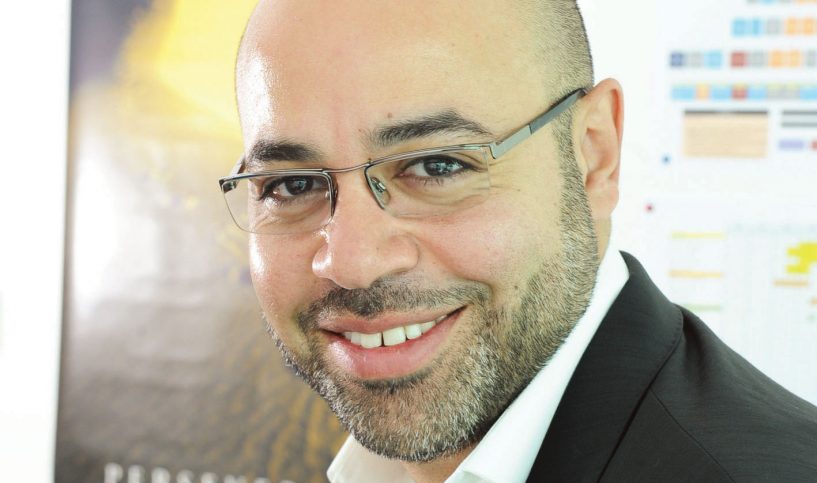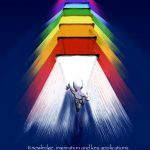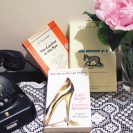Sharif Maghrabi tackles the journey of self-development through his new book, The 7 Gates of PHI (Progressive Human Integration): Knowledge, inspiration, and key applications for the journey of self-development. A notion that is much easier said than done, the inspirational author tells us more about this enjoyable read and simplifies life’s lessons into easy and applicable examples. Given these tools, wouldn’t you feel motivated to immediately change your life?
Why is the journey of transformation subjected to seven gates? Does the number 7 hold any personal significance to you?
While earlier considering the overall concept of the book, I was trying to formulate a message to define what I felt were the different stages of the journey of self-development. I wrote down key concepts that I felt represented the key milestones in the journey – self, mind, body, heart, people, time, and change. I then realized that they were ‘7’ gates, noticing that the number seven is actually quite significant. There are seven days in the week, seven chakras, seven deadly sins; seven colors in the rainbow, seven base metals, seven ‘heavens’ and the list goes on…. The cover of the book is designed to represent the awakening of consciousness as it journeys through the 7 ‘colors’ of the chakras.
There are many metaphors in this book, including references to the divine ratio or phi, 1:1.6, and it is found everywhere in nature; I chose this symbol to represent a balance that we can try to attain.
What are some personal experiences that you feel add to the value of the principles and practices that you share with your readers?
The structure of the book is designed in a way where information has been summarized into short and concise data chunks that the reader can reference and apply quickly and easily. In the beginning of every module I weaved a sort of autobiography into the story via the personal portraits section. Essentially, I feel that I’ve collected a certain amount of knowledge that can affect readers positively. Everyone needs that; people who ‘seem’ to have their life together still feel that they need some more help with different issues.
I am lucky to have been a student of psychology all of my life and certified in many professional and vocational courses related to this content. But I always use the disclaimer that I am nowhere near the point where I’ve successfully applied the principles in this book – but I state with utmost confidence that I’ll always continue to try.
You make change seem a lot less daunting. In your mind, what is the hardest aspect about implementing change in one’s life?
I think that the hardest part about change is having the clarity and conviction about the new direction that you are taking in life. The need to change stems from the awareness that something is not right, or something could be better, or that you feel you deserve better. Once you have that awareness, which psychologists sometimes refer to as observing ego, then you have the ability to objectively review your situation and then develop or design certain aspects that slowly lead you to your desired objective. It takes courage and a high level of self-esteem while also being linked to purpose – that’s the only way you can continue to fuel the motivation required to deal with the emotional tides that come with change. When choosing to change something vital in our lives, like a job, or a relationship or even ourselves, we are faced with internal and external challenges. Without having the conviction and desire to continue, then doubting ourselves comes easily.
What does the process of self-examination and transformation mean to you?
It is a constant evolution or progression of the self. I mention in the book that there is a Jungian theory of personality design that is based on the 4 key archetypes of King, Lover, Warrior and Magician. Most of us gravitate towards a certain temperament but what many people fail to realize is that there is a big difference between changing personality and adapting behavior. I came up with 12 key ‘principles’ that represent the synthesis of values that continue to push me to try to be my best – know truth, serve justice, learn knowledge, care for yourself, love others, feel passion, show honor, create art, inspire change, harness strength, achieve discipline and get balance. I think this should keep me busy until I’m 6 feet under! Many friends ask me what is it that makes us want to be our best? I will never know what it means to others, as it is subjective.
You mention that you are still on your journey, does that mean that there is no end to change?
There is no end to change – one of my favorite quotes of all time – ‘the only constant – is change.”
Learn more about The 7 Gates of PHI by visiting www.facebook.com/the7phi. For promotions, keynotes, speeches and/or publishing opportunities, contact Sharif Maghraby at maghraby@mac.com.












